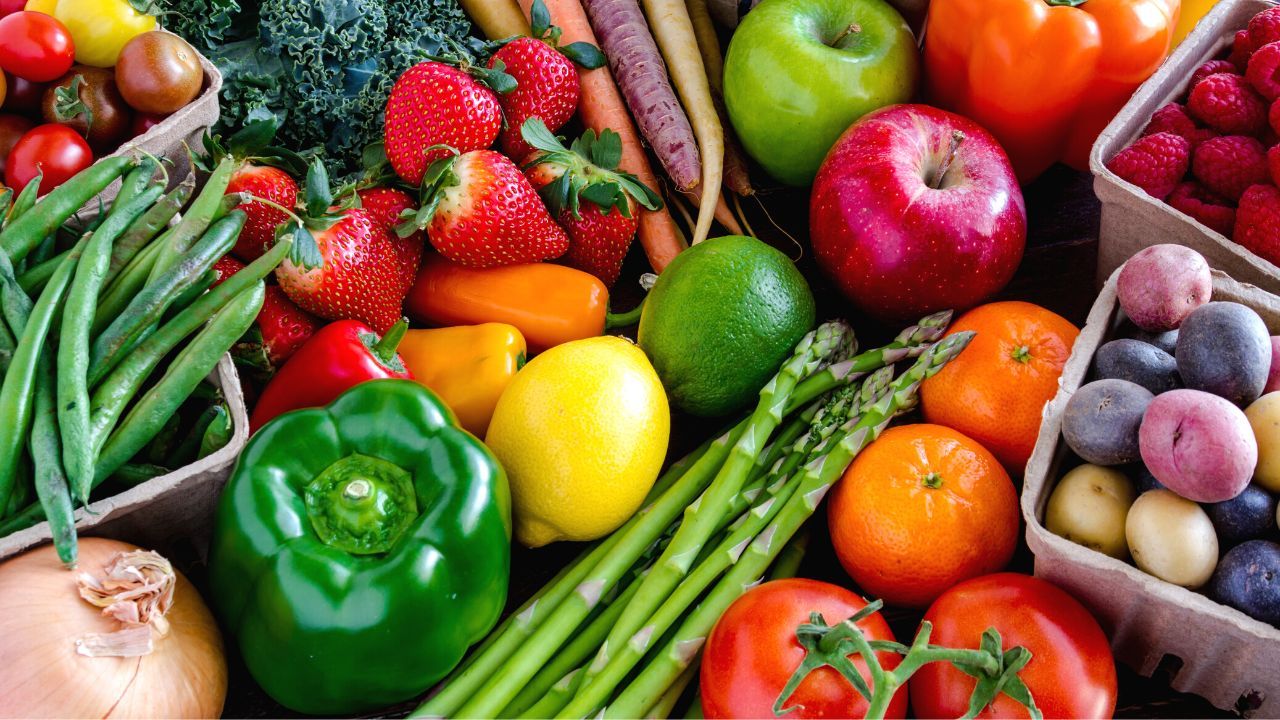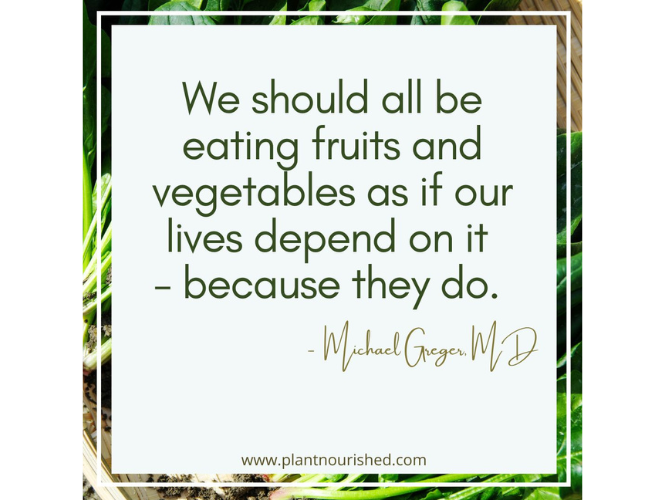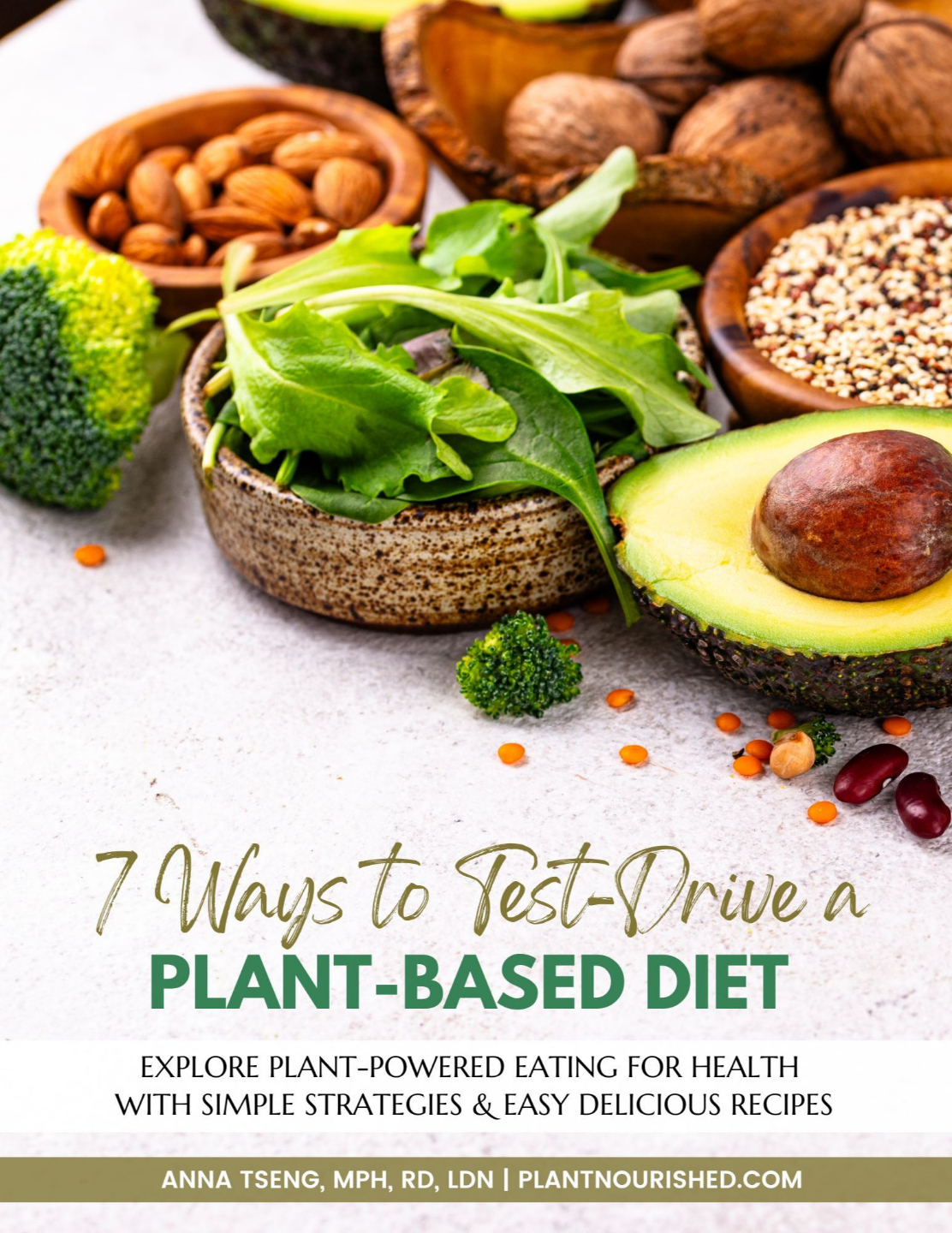Fruits and Vegetables: Why We Need to Eat Them
Mar 27, 2023
What’s your relationship to fruits and vegetables? Perhaps you grew up loving them, or maybe you developed a hatred for them because your parents always forced you to eat them. Yet, curiously enough, every national dietary guideline embraces and promotes them. You have probably also heard countless times before just how good vegetables are for you. So, what exactly is it about fruits and vegetables that’s so beneficial? Let’s explore that in this article!
How Important?
Let's start with this quote from an esteemed doctor and advocate of plant-based diets, Dr. Michael Greger:

It’s a thought-provoking quote, isn’t it? Should we really all be eating fruits and vegetables as if our lives depended on them?
But if you reflect a little deeper on this quote, you'll realize its truth. Epidemiological studies consistently show that populations with higher intakes of fruits and vegetables enjoy fewer chronic health conditions and diseases. And that’s not surprising when you see what’s in these key categories of a whole food plant-based diet.
What’s in Fruits and Vegetables
Most fruits and vegetables are low-calorie plant foods, high in dietary fiber and pack a heavy nutritional punch. That’s because they provide vitamins like vitamins A and C, contain minerals such as potassium, magnesium and phosphorus, and are rich in phytochemicals. These phytochemicals function as antioxidants, phytoestrogens, and anti-inflammatory agents and provide other protective mechanisms. Blueberries are rich in flavonoids, which possess antioxidant and anti-inflammatory properties, while dark green leafy vegetables are especially rich in phytonutrients such as carotenoids. Both have been shown to have beneficial effects on cognitive function in aging adults.
Specific Protective Components

Fruits and vegetables actually provide a wide variety of compounds that have been linked to a lower incidence of chronic diseases, especially cancer and cardiovascular disease. Listed below are 20 protective components of fruits and vegetables that have been linked to positive health outcomes:
Dietary fiber
Vitamin C
Vitamin E
Carotenoids
Flavonoids
Folic acid
Selenium
Dithiolthiones
Glucosinolates
Indoles
Isothiocyanates
Coumarins
Phenols
Protease inhibitors
Plant sterols
Isoflavones/lignans
Saponins
Inositol hexaphosphate
Allium compounds
Limonene
Surprised by this list? Now imagine this - If these are just some of the protective components of fruits and vegetables shown here, think of how many MORE protective health components and benefits you will get when you regularly include all the other whole plant-based food categories such as whole grains and legumes into your meals. So let's start today to add more health-boosting fruits and vegetables into our meals and snacks!
Sources:
- Slavin JL, Lloyd B. Health benefits of fruits and vegetables. Adv Nutr. 2012;3(4):506-516. Published July 1, 2012.
- Morris MC, Wang Y, Barnes LL, Bennett DA, Dawson-Hughes B, Booth SL. Nutrients and bioactives in green leafy vegetables and cognitive decline: Prospective study. Neurology. 2018 Jan 16;90(3):e214-e222. Epub 2017 Dec 20.



